
Vienna 1900. Birth of a Visionary Movement – Morning Panels
Image: Verena Repar
MAY 3 | 9 AM – 2.15 PM
Please RSVP here.
Vienna 1900 has become a hallmark for the city’s outstanding innovative capacities in formulating modern thought and highlighting the paradoxes of modernity. Renowned experts from Austria, the US and Great Britain will present the latest research on this topic and reflect on potentialities for cultural and societal innovation in the 2020s.
A two-day conference of the Vienna Institute for Cultural and Contemporary History and Arts (VICCA), the Vienna Library in the Town Hall, and topos.ORF.at (The Austrian Broadcasting Corporation), in cooperation with the Austrian Cultural Forum New York. On this page you will find information about the second day of the conference, May 3rd, 2024.
Program May 3rd, 2024 – Morning Panels, 9 am-2.15 pm
Arrivals and coffee, 8.30 am-9.00 am
Panel 1: Viennese Radicalism in Music, 9 am-10.15 am
“Tradition is the passing on of the fire, not the worship of ashes.” (Gustav Mahler)
- Leon Botstein, President of Bard College
- Rubén Gallo, Princeton University
- Christian Glanz, University of Music and Performing Arts Vienna
Moderator Gerald Heidegger, chief editor TOPOS, ORF.at
Coffee break, 10.15 am-10.45 am
Panel 2: New Perspectives on the Cultural Revolution in Vienna pre-1900, 10.45 am-12.00 noon
“Not only Freud but artists and writers were also interested in the unconscious. It was medicine that made the first steps toward modernity.” (Eric Kandel)
- Richard Cockett, The Economist, London
- Anita Kern, German University in Cairo
- Kathrin Pokorny-Nagel, MAK (Museum of Applied Arts) Vienna
- Mechtild Widrich, School of the Art Institute of Chicago
Moderator: Oliver Rathkolb, University of Vienna and VICCA
Light lunch, 12.00 noon-1 pm
Panel 3: Rethinking Traditions and Innovation in Psychoanalysis and Literature during the Viennese Cultural Revolution, 1 pm-2.15 pm
“You’ve taught me to write, yes, almost to think.” (Arnold Schönberg to Karl Kraus, 1911)
- Daniela Finzi, Scientific Director of the Sigmund Freud Museum Vienna
- George Makari, Professor of Psychiatry at Weill Cornell Medical College, NY
- Alys George, Stanford University / ifk International Research Center for Cultural Studies (Vienna)
- Katharina Prager, Vienna Library at the Town Hall
Moderator: Gerald Heidegger, chief editor TOPOS, ORF.at
Daytime program ends 2.15 pm
About the Panelists
Panel 1: Viennese Radicalism in Music
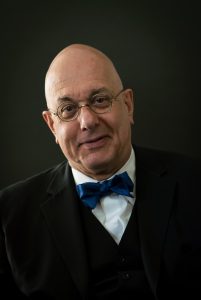 Leon Botstein is president and Leon Levy Professor in the Arts of Bard College. Founder of Bard High School Early College, Dr. Botstein put into practice a vision of high school as a public space where young adults, with the guidance of a college level faculty, explore their intellectual potential. He has published widely in the fields of education, music, and history and culture and is the author of several books including Jefferson’s Children: Education and the Promise of American Culture, and editor of The Compleat Brahms and The Musical Quarterly. He is the music director of the American Symphony Orchestra and The Orchestra Now (TŌN), and principal guest conductor of the Jerusalem Symphony Orchestra, where he served as music director. He is the founder and an artistic director of the Bard Music Festival. His work has been acknowledged with awards from the American Academy of Arts and Letters, Harvard University, government of Austria, and Carnegie Foundation. He was elected to the American Philosophical Society in 2011. Image Credits: Matt Dine
Leon Botstein is president and Leon Levy Professor in the Arts of Bard College. Founder of Bard High School Early College, Dr. Botstein put into practice a vision of high school as a public space where young adults, with the guidance of a college level faculty, explore their intellectual potential. He has published widely in the fields of education, music, and history and culture and is the author of several books including Jefferson’s Children: Education and the Promise of American Culture, and editor of The Compleat Brahms and The Musical Quarterly. He is the music director of the American Symphony Orchestra and The Orchestra Now (TŌN), and principal guest conductor of the Jerusalem Symphony Orchestra, where he served as music director. He is the founder and an artistic director of the Bard Music Festival. His work has been acknowledged with awards from the American Academy of Arts and Letters, Harvard University, government of Austria, and Carnegie Foundation. He was elected to the American Philosophical Society in 2011. Image Credits: Matt Dine
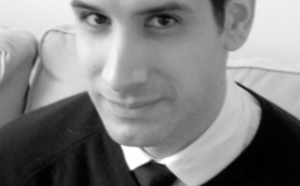 Rubén Gallo is the Walter S Carpenter Jr. Professor in Latin American Literature at Princeton University, where he has taught since 2002. He is the author of many books on Twentieth Century culture, including Mexican Modernity: the Avant-Garde and the Cultural Revolution (MIT Press, 2006, winner of the MLA’s Katherine Singer Kovacs Prize), Freud’s Mexico: Into the Wilds of Psychoanalysis (MIT, 2010, winner of the Gradiva Prize), Proust’s Latin Americans (Hopkins, 2014). He is also a novelist and was published two books on Cuba: Teoría y práctica de la Habana (2017) and Muerte en La Habana (2021). His work has been translated into French, Spanish, Italian, Japanese and Chinese. He is a member of the American Academy of Arts and Sciences and serves on the board of the Freud Museum, Vienna.
Rubén Gallo is the Walter S Carpenter Jr. Professor in Latin American Literature at Princeton University, where he has taught since 2002. He is the author of many books on Twentieth Century culture, including Mexican Modernity: the Avant-Garde and the Cultural Revolution (MIT Press, 2006, winner of the MLA’s Katherine Singer Kovacs Prize), Freud’s Mexico: Into the Wilds of Psychoanalysis (MIT, 2010, winner of the Gradiva Prize), Proust’s Latin Americans (Hopkins, 2014). He is also a novelist and was published two books on Cuba: Teoría y práctica de la Habana (2017) and Muerte en La Habana (2021). His work has been translated into French, Spanish, Italian, Japanese and Chinese. He is a member of the American Academy of Arts and Sciences and serves on the board of the Freud Museum, Vienna.
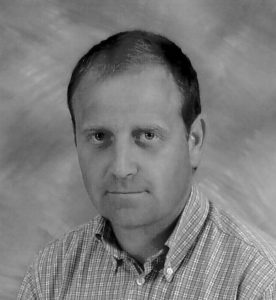 Christian Glanz, born 1960, studied musicology and history in Graz, postdoctoral lecture qualification (Habilitation) in Vienna 2007, currently Professor (Historical Musicology) at University of Music and Performing Arts Vienna (mdw). Director of mdw-based science center “Gustav Mahler and Viennese Modernity”, member of executive committee International Hanns Eisler Society (Berlin) and Institute of Austrian and German Music Research (Surrey). Main research interest: music and politics, Gustav Mahler, Hanns Eisler.
Christian Glanz, born 1960, studied musicology and history in Graz, postdoctoral lecture qualification (Habilitation) in Vienna 2007, currently Professor (Historical Musicology) at University of Music and Performing Arts Vienna (mdw). Director of mdw-based science center “Gustav Mahler and Viennese Modernity”, member of executive committee International Hanns Eisler Society (Berlin) and Institute of Austrian and German Music Research (Surrey). Main research interest: music and politics, Gustav Mahler, Hanns Eisler.
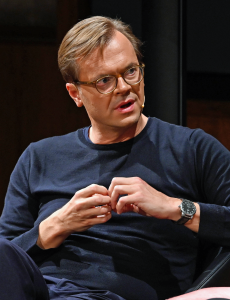 Gerald Heidegger, literary scholar, was editor-in-chief of Austria’s largest digital news platform ORF.at for over 20 years and is currently head of the knowledge and culture platform ORF Topos. He is also responsible for the further development of new formats for the digital sector. Image Credits:
Gerald Heidegger, literary scholar, was editor-in-chief of Austria’s largest digital news platform ORF.at for over 20 years and is currently head of the knowledge and culture platform ORF Topos. He is also responsible for the further development of new formats for the digital sector. Image Credits:
Panel 2: New Perspectives on the Cultural Revolution in Vienna pre-1900
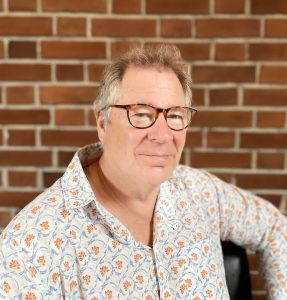 Richard Cockett is a senior editor at The Economist newspaper and a member of the Institute for Advanced Study, Princeton. Dr. Cockett is the author of Vienna: How the City of Ideas created the Modern World, published in 2023, as well as seven other books. Before joining The Economist he was a lecturer in history and politics at the University of London and a junior Research Fellow at the British Academy. He lives in London.
Richard Cockett is a senior editor at The Economist newspaper and a member of the Institute for Advanced Study, Princeton. Dr. Cockett is the author of Vienna: How the City of Ideas created the Modern World, published in 2023, as well as seven other books. Before joining The Economist he was a lecturer in history and politics at the University of London and a junior Research Fellow at the British Academy. He lives in London.
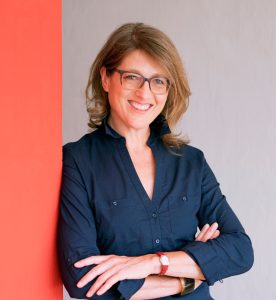 Anita Kern, born in Vienna. Graphic designer and cultural scientist. Studied graphic design and advertising design, doctoral thesis in cultural and intellectual history at the University of Applied Arts Vienna. Founder of the communication design office Kerndesign. Author of the cultural study “Austrian Graphic Design in the 20th Century” (2008), “Graphic Design from Viennese Modernism to Today. From Kolo Moser to Stefan Sagmeister“ (2009), “Icons and Ephemera. Arthur Zelger and Graphic Design in Tyrol” (2014), “Joseph Binder. Protagonist of Modernity” (2012) and “Art Director in the USA” (2016). Professor of Graphic Design at the German University in Cairo, Faculty for Applied Sciences and Arts, University Lecturer at the University of Applied Arts Vienna and at the Danube University Krems. Member of designaustria (head of ExpertCluster Design History), the Typographic Society Austria, the Design History Network Zurich, the Design History Society, UK.
Anita Kern, born in Vienna. Graphic designer and cultural scientist. Studied graphic design and advertising design, doctoral thesis in cultural and intellectual history at the University of Applied Arts Vienna. Founder of the communication design office Kerndesign. Author of the cultural study “Austrian Graphic Design in the 20th Century” (2008), “Graphic Design from Viennese Modernism to Today. From Kolo Moser to Stefan Sagmeister“ (2009), “Icons and Ephemera. Arthur Zelger and Graphic Design in Tyrol” (2014), “Joseph Binder. Protagonist of Modernity” (2012) and “Art Director in the USA” (2016). Professor of Graphic Design at the German University in Cairo, Faculty for Applied Sciences and Arts, University Lecturer at the University of Applied Arts Vienna and at the Danube University Krems. Member of designaustria (head of ExpertCluster Design History), the Typographic Society Austria, the Design History Network Zurich, the Design History Society, UK.
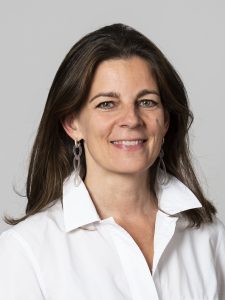 Kathrin Pokorny-Nagel studied art history in Vienna, Munich and Cambridge and Library and Information Studies at the University of Vienna. Since 1996 at the MAK, initially research assistant on the founding history of the k.k. Austrian Museum, since 2001 Head of the MAK Library and Works on Paper Collection/Archives. Lectures on the history of printing, printing techniques and modern book art and on exhibition management at the University of Vienna. Several EU-funded research projects for the MAK Collection, ornamental engravings and artists’ books. Numerous publications, lectures and exhibitions on the history of applied arts museums, collection history, library history, book art and commercial art. Image Credits: MAK
Kathrin Pokorny-Nagel studied art history in Vienna, Munich and Cambridge and Library and Information Studies at the University of Vienna. Since 1996 at the MAK, initially research assistant on the founding history of the k.k. Austrian Museum, since 2001 Head of the MAK Library and Works on Paper Collection/Archives. Lectures on the history of printing, printing techniques and modern book art and on exhibition management at the University of Vienna. Several EU-funded research projects for the MAK Collection, ornamental engravings and artists’ books. Numerous publications, lectures and exhibitions on the history of applied arts museums, collection history, library history, book art and commercial art. Image Credits: MAK
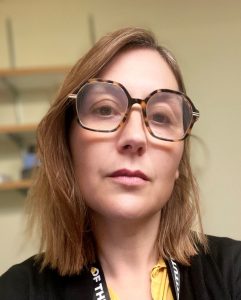 Mechtild Widrich is Professor in the Art History, Theory and Criticism Department at the School of the Art Institute in Chicago and 2023/24 fellow at the Nanovic Institute for European Studies at the University of Notre Dame. Widrich researches art in public space, in particular monuments and monument activism, and the relationship between aesthetics, design, and politics. Widrich is the author of Performative Monuments. The Rematerialisation of Public Art (Manchester UP, 2014) and Monumental Cares. Sites of History and Contemporary Art (Manchester UP, 2023), and numerous scholarly articles, as well as co-translator and editor of Karl Rosenkranz’s Aesthetics of Ugliness. A Critical Edition (Bloomsbury, 2015). Widrich received her MA degree in art history from the University of Vienna and her PhD from the Department of Architecture at the Massachusetts Institute of Technology. She previously held positions at ETH Zurich and the Universities of Vienna, Zurich and Basel, most recently as guest professor at the University of Applied Arts Vienna (2022), and in the Committee on Social Thought at the University of Chicago (2023). Image Credits: Mechtild Widrich
Mechtild Widrich is Professor in the Art History, Theory and Criticism Department at the School of the Art Institute in Chicago and 2023/24 fellow at the Nanovic Institute for European Studies at the University of Notre Dame. Widrich researches art in public space, in particular monuments and monument activism, and the relationship between aesthetics, design, and politics. Widrich is the author of Performative Monuments. The Rematerialisation of Public Art (Manchester UP, 2014) and Monumental Cares. Sites of History and Contemporary Art (Manchester UP, 2023), and numerous scholarly articles, as well as co-translator and editor of Karl Rosenkranz’s Aesthetics of Ugliness. A Critical Edition (Bloomsbury, 2015). Widrich received her MA degree in art history from the University of Vienna and her PhD from the Department of Architecture at the Massachusetts Institute of Technology. She previously held positions at ETH Zurich and the Universities of Vienna, Zurich and Basel, most recently as guest professor at the University of Applied Arts Vienna (2022), and in the Committee on Social Thought at the University of Chicago (2023). Image Credits: Mechtild Widrich
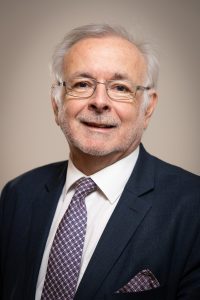
Oliver Rathkolb, currently Professor at the University of Vienna Department of Contemporary History, chairperson of the academic committee of the House of European History (European Parliament, Brussels); author of several books focusing on contemporary history; editor and co-editor of several studies concerning interdisciplinary questions of contemporary history and communications/media history; managing editor of the journal “zeitgeschichte” and the publication series “Zeitgeschichte im Kontext”; his prize-winning study The Paradoxical Republic: Austria 1945–2020 was published in 2021 by Berghahn Books (New York/Oxford). Image Credits: ParlamentsdirektionUlrike Wieser
Panel 3: Rethinking Traditions and Innovation in Psychoanalysis and Literature during the Viennese Cultural Revolution
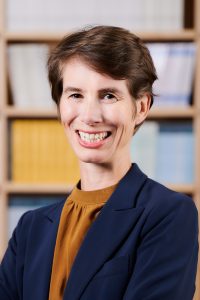 Daniela Finzi is a literature and cultural historian. She is a researcher and curator at the Sigmund Freud Museum since 2009 and she has been research director and board member of the Sigmund Freud Privatstiftung since 2016. She studied German Philology and Theatre Studies in Salzburg, Vienna, Paris and Berlin and completed the interdisciplinary Ph.D. program “Cultures of Difference. Transformation in Central Europe” at the University of Vienna. Her research interests are Psychoanalytical Cultural Theory, Exile Studies and Gender Studies. Image Credits: Martin Hörmandinger
Daniela Finzi is a literature and cultural historian. She is a researcher and curator at the Sigmund Freud Museum since 2009 and she has been research director and board member of the Sigmund Freud Privatstiftung since 2016. She studied German Philology and Theatre Studies in Salzburg, Vienna, Paris and Berlin and completed the interdisciplinary Ph.D. program “Cultures of Difference. Transformation in Central Europe” at the University of Vienna. Her research interests are Psychoanalytical Cultural Theory, Exile Studies and Gender Studies. Image Credits: Martin Hörmandinger
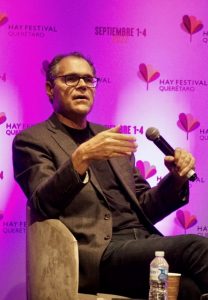 Historian, psychoanalyst, and psychiatrist George Makari most recently published Of Fear and Strangers: A History of Xenophobia, the winner of the 2022 Anisfield-Wolf Prize for non-fiction and the 2023 Elisabeth Young-Breuhl Award. He is also the author of Soul Machine: The Invention of the Modern Mind, a 2015 Guardian Best Book of the Year that the Wall Street Journal called “essential reading”. Makari’s first book was the award-winning Revolution in Mind: The Creation of Psychoanalysis which was called “magisterial” in the Financial Times. His books have been translated into ten languages. In addition to his academic articles, his popular essays have appeared in The New Yorker, The New York Times, The Los Angeles Review of Books, and other venues. He also conducts a podcast, interviewing artists and writers on the nature of the imagination. Director of the DeWitt Wallace Institute of Psychiatry: History, Policy, and the Arts, Dr. Makari is Professor of Psychiatry at Weill Cornell Medical College and Adjunct Professor at Rockefeller University and the Columbia University Center for Psychoanalytic Training and Research. He attended Brown University, Cornell University Medical College, and the Columbia Psychoanalytic Center. He lives with his family in New York City.
Historian, psychoanalyst, and psychiatrist George Makari most recently published Of Fear and Strangers: A History of Xenophobia, the winner of the 2022 Anisfield-Wolf Prize for non-fiction and the 2023 Elisabeth Young-Breuhl Award. He is also the author of Soul Machine: The Invention of the Modern Mind, a 2015 Guardian Best Book of the Year that the Wall Street Journal called “essential reading”. Makari’s first book was the award-winning Revolution in Mind: The Creation of Psychoanalysis which was called “magisterial” in the Financial Times. His books have been translated into ten languages. In addition to his academic articles, his popular essays have appeared in The New Yorker, The New York Times, The Los Angeles Review of Books, and other venues. He also conducts a podcast, interviewing artists and writers on the nature of the imagination. Director of the DeWitt Wallace Institute of Psychiatry: History, Policy, and the Arts, Dr. Makari is Professor of Psychiatry at Weill Cornell Medical College and Adjunct Professor at Rockefeller University and the Columbia University Center for Psychoanalytic Training and Research. He attended Brown University, Cornell University Medical College, and the Columbia Psychoanalytic Center. He lives with his family in New York City.
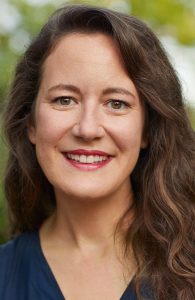 Alys George is Assistant Professor of German Studies at Stanford University and the current City of Vienna Fellow at the ifk International Research Center for Cultural Studies (Vienna). Her research interests center on 19th- through 21st-century Austrian and German literature, cultural history, and visual culture, with a special emphasis on modernism and the postwar period. George’s book, The Naked Truth: Viennese Modernism and the Body (University of Chicago Press, 2020), was awarded the Modern Language Association’s Scaglione Prize in Germanic Languages and Literatures and the German Studies Association’s Best Book Prize in Literature and Cultural Studies. It was also shortlisted for both the Laura Shannon Prize in Contemporary European Studies and the Waterloo Centre for German Studies Book Prize. Image Credits: Franziska Liepe
Alys George is Assistant Professor of German Studies at Stanford University and the current City of Vienna Fellow at the ifk International Research Center for Cultural Studies (Vienna). Her research interests center on 19th- through 21st-century Austrian and German literature, cultural history, and visual culture, with a special emphasis on modernism and the postwar period. George’s book, The Naked Truth: Viennese Modernism and the Body (University of Chicago Press, 2020), was awarded the Modern Language Association’s Scaglione Prize in Germanic Languages and Literatures and the German Studies Association’s Best Book Prize in Literature and Cultural Studies. It was also shortlisted for both the Laura Shannon Prize in Contemporary European Studies and the Waterloo Centre for German Studies Book Prize. Image Credits: Franziska Liepe
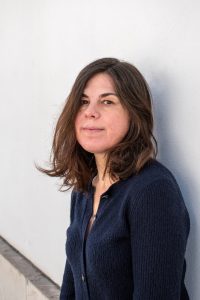
Katharina Prager is historian, heading the Department of Research and Participation at the Vienna Library in the City Hall. She researches and publishes on Vienna 1900, transnationality and life writing. Image Credits: Jacqueline Godany

Gerald Heidegger, literary scholar, was editor-in-chief of Austria’s largest digital news platform ORF.at for over 20 years and is currently head of the knowledge and culture platform ORF Topos. He is also responsible for the further development of new formats for the digital sector. Image Credits:

